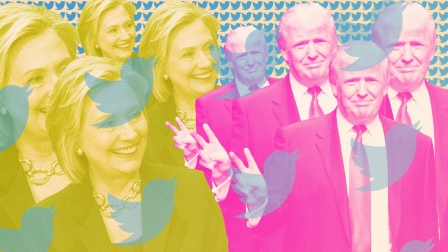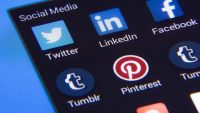How Twitter Moderate Debate?
Nasty put-downs, fact-challenged assertions, and lots of bluster. They won’t just be evident up on stage at Hofstra University during tonight’s presidential debate between Hillary Clinton and Donald Trump. They’ll also be ubiquitous on Twitter, which is live-streaming the event for its millions of opinionated users around the world (it’s also available via the Wall Street Journal app and Facebook Live, among others).
Twitter’s live stream sets itself apart in a few ways. For starters, Twitter won’t require anyone to sign up for the service, or even download the app, to watch online—you’ll just have to punch debate.twitter.com into your URL bar. The official debate hashtags: #debates and #debates2016 will each auto-populate an emoji. And whether you’re watching on your smartphone or via Apple TV or another device, the live stream will feature a curated Twitter timeline and the platform will allow users to tweet direct from the live stream page (or from the Moments tab in the mobile app). Through a partnership with the Commission on Presidential Debates, moderator Lester Holt may even end up asking the candidates questions curated from users live on air.
But given the ongoing debate over fairness on social media, how will Twitter make sure that its curated timeline strikes the right balance between opposing political viewpoints, doesn’t veer too liberal or conservative, and plays a fact-checking role? After all, during the primaries opinions tended to overwhelm thoughtful commentary and factual assertions, as they almost always do, on the platform. And in the previous election cycle Twitter was widely considered to be favoring Barack Obama over Mitt Romney: More users considered themselves liberal than conservative in 2012 and the political opinions expressed on the platform varied greatly from reality. After Obama’s disappointing performance in his first debate against Romney, 59% of Twitter users thought he did a better job than Romney, though offline only 20% of people felt that way.
This time around, conservatives have claimed that Twitter has unfairly banned conservatives and Trump supporters, including Azealia Banks and controversial Breitbart editor Milo Yiannopoulos, as well as removed anti-Clinton hashtags. And some liberals have argued that the platform has been slow to remove offensive tweets by white supremacists and racists.
And there will be more eyes than ever watching this debate. Ten million tweets were sent during the first presidential debate on that Wednesday night in 2012; since then, the number of active users on Twitter has doubled to more than 313 million.
So how honest and educated will Twitter’s algorithm-curated tweet stream be during the debate, with so many partisans slinging mud on both sides?
Twitter insists that the stream will be solely curated by algorithm. In its early iterations—during the Republican and Democratic conventions, for example—the algorithm sourced only those tweets containing the appropriate event hashtag. But tonight, no hashtags will be required; instead, the algorithm trawls an ocean of timely tweets in search of key terms, relevant commentary, and more. This seems to lend itself to even more likely chaos and bickering. (Twitter declined to comment when asked whether human editors are set to intervene to prevent offensive tweets from appearing in live-stream timelines.)
During an NFL game, it’s simple enough to catch and serve up player news, scores, highlights, and fan support from both sides. But populating a stream of tweets during a presidential debate has more import than it does during any given football game. Impartial fans tuning in to an NFL game won’t likely be jumping aboard the winning team’s bandwagon. And while some will, the only fans that really matter on game day are those who choose to squeeze into a pro football stadium with limited seating (and overpriced concessions).
Since it’s the first face-to-face encounter between Clinton and Trump, and they’re in statistical tie, the stakes are astronomically high. This debate—and those to come—will influence the millions of voters who are currently on the fence.
One of the most contentious issues is how the candidates’ statements should be fact-checked. “Fact-checking is a crucial responsibility of debate moderators—and commentators covering the debates—who will give voters one of the last chances to judge the candidates on the substance and breadth of their policy proposals,” says Olivia Kittel for Media Matters.
Fact-checking isn’t about swaying a voter in any given direction, but about ensuring that the American public is as informed as they can be when they make their presidential decision on November 8. During this tight presidential race, intriguing throughout, the media has repeatedly failed to call out campaign lies as they happen—and even call out “lies” after the fact.
One test of Twitter’s usefulness will be whether it can surface tweets with smart analysis and fact-based insights out of the ocean of blather and vitriol. Not all tweets are created equal, though American voters may be, and the algorithm needs to reflect that reality in real time. As we move ever closer to a frightening “post-fact world,” Twitter must share a responsibility in setting the record straight. Especially if the company is serious about becoming a trusted newsmaker.
Fast Company , Read Full Story
(38)













